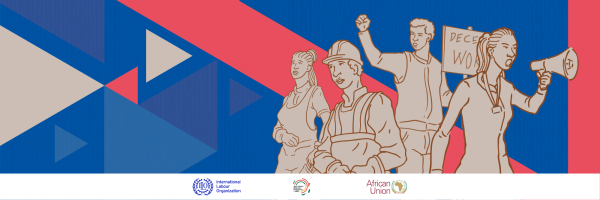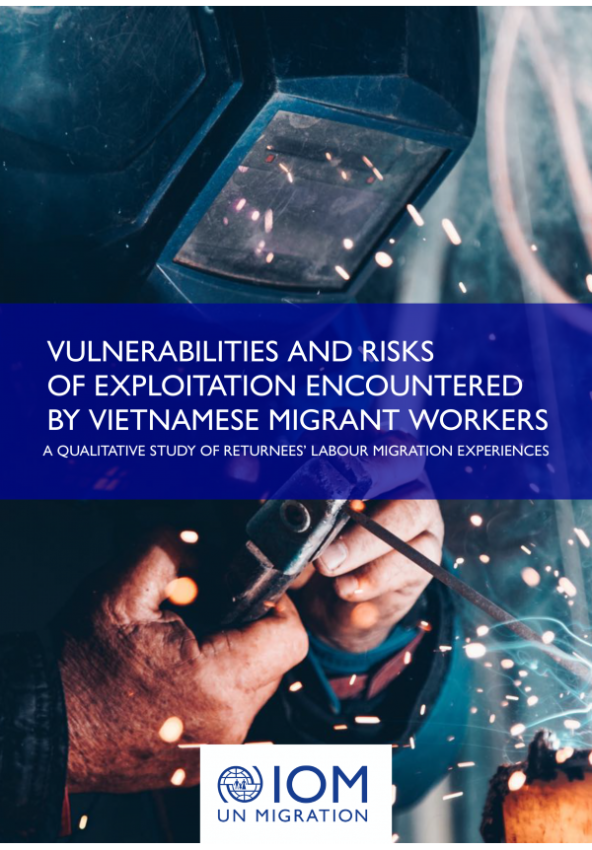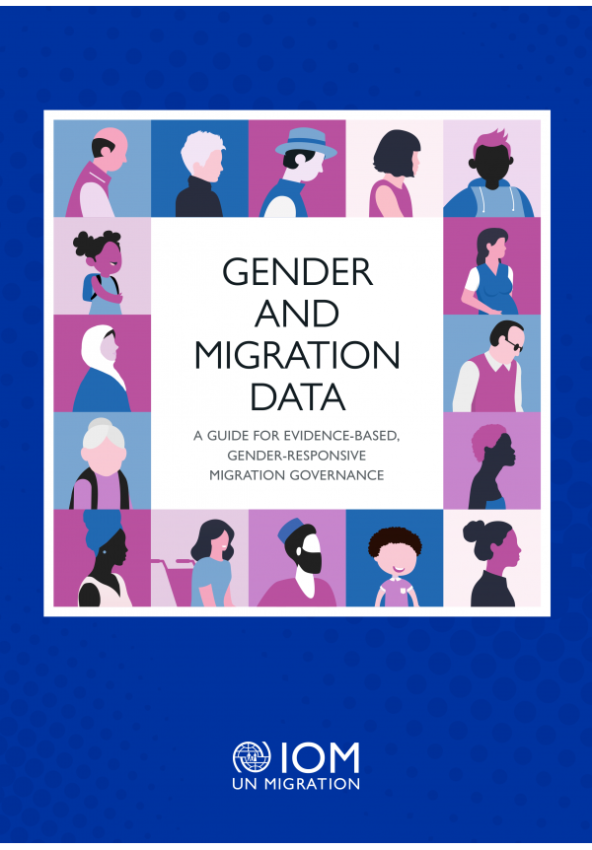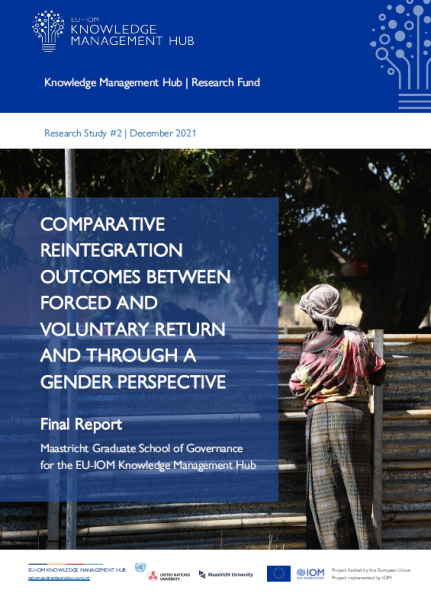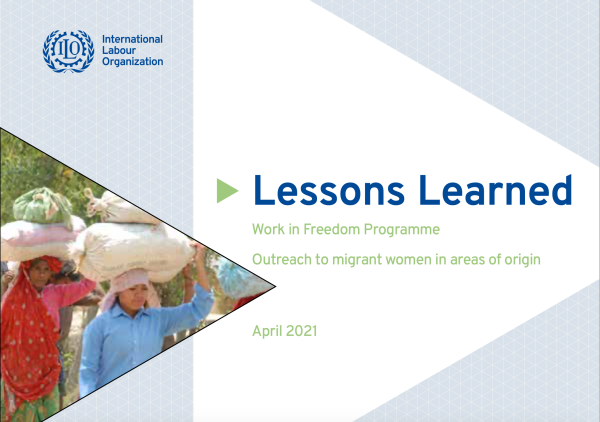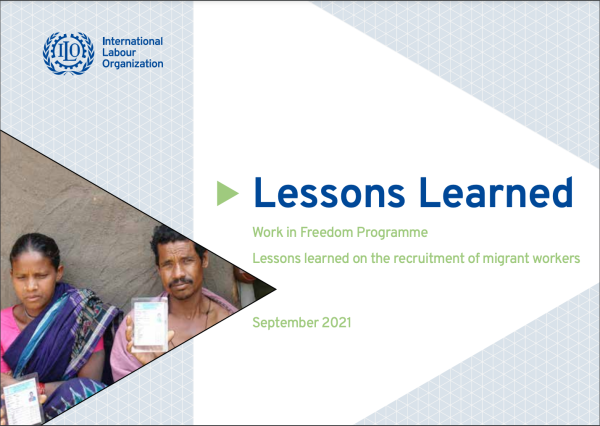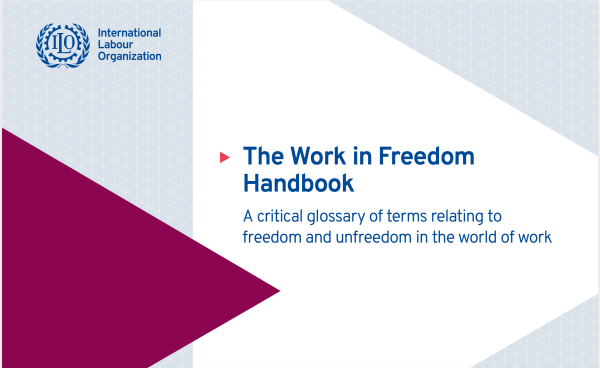ITC-ILO Online Course: Trade Union Manual to Promote Migrant Workers’ Rights and Foster Fair Labour Migration Governance
Introduction to the course
International migration has been on the rise within Africa. In 2019, there were 26.3 million international migrants in Africa - an increase of 17.2 million since 2010. Movement across national borders in search of decent work is one of the key drivers of international migration. Throughout the migration and recruitment process, migrant workers are exposed to undue hardships and abuses in the form of low wages, poor working and living conditions, limited access to social protection, denial of freedom of association and workers’ rights, discrimination as well as social exclusion. Migrant workers’ contributions to the economies of their host and origin countries many times remains unaccounted for – yet migrant workers generate tremendous benefits to both.
In this context, there is a need therefore for a comprehensive and balanced approach to labour migration governance. Well-governed labour migration can contribute to sustainable development for countries of origin, transit and destination, and can provide benefits and opportunities for migrant workers and their families. In this regard, the ILO in collaboration with the Joint Labour Migration Programme (JLMP) and the African Union (AU), developed the Trade Union Manual to promote migrant workers’ rights and foster fair labour migration governance in Africa intended to achieve this objective. The self-guided toolkit complements the ILO training programmes and capacity building activities for Trade Unions aiming at strengthening their role in promoting a rights-based approach to labour migration.
Who attends this course?
The course is designed for officials, policy-makers and practitioners of public institutions and ministries dealing with migration, trafficking and/or forced labour; representatives of employers' and workers’ organizations; representatives of public and private employment agencies; staff of NGOs and civil society organizations; experts from international agencies and other key actors concerned with these issues.
Objectives of the toolkit
Participants will learn about:
- Regional policy, legal frameworks and programmes on labour migration
governance in Africa - International instruments and international labour standards relevant to migrant workers
- The importance of social dialogue in labour migration governance
- Trade union initiatives to promote fair recruitment, and gender-responsive policy implementation
- The role of trade unions in Africa and abroad and recommendations in terms of providing support to migrant workers
- Trade union international good practices
Methodology and certification
The course consists of a number of online modules offered via the ITCILO e-Campus online platform-
This course provides a flexible learning journey as it is completely asynchronous, composed of several self-guided modules.
At the end of course and after successfully completing the final quiz, participants will be granted a certificate of participation.
Structure
The toolkit is composed of 14 training modules, each module has examples of international good practices and highlights the role that workers’ organizations play in each thematic area.
Download the PDF version of Trade Union Manual to Promote Migrant Workers' Rights and Foster Fair Labour Migration Governance
Module 1.
ILO’s Mandate, AU on Labour Migration, Tripartism and Social Dialogue, Data and Trade Union Networks in Africa on Labour Migration
Module 2.
Global Policy Frameworks guiding labour migration governance in Africa
Module 3.
Global Instruments on the protection of migrant workers (UN and ILO Instruments)
Module 4.
Regional policy, legal frameworks and programmes on labour migration governance in Africa
Module 5
Gender equality and women’s empowerment in labour migration governance
Module 6.
Women migrant domestic workers’ particular challenges in working in private households. The need for targeted TU actions
Module 7.
Enhancing fair recruitment practices and regulations
Module 8
Labour exploitation and abuse of migrant workers
Module 9
Skills partnerships, migrant workers’ skills development, portability and recognition, certifications of skills and qualifications
Module 10.
Organizing migrant workers: Freedom of Association and Collective Bargaining, key obstacles and good practices
Module 11.
Promoting social protection of migrant workers
Module 12.
Working and living conditions of migrant workers particularly working time, wages, occupational safety and health, violence and harassment, HIV/AIDS
Module 13.
Advocating for equality of treatment and opportunities, and contributing to labour market integration and combating discrimination in diverse multi-ethnic workplaces and multilingual contexts
Module 14.
Impact of COVID-19 on labour migration
Start the course here.
Type of document :
Country/Region :
Year of publication :
Theme : ,
Trade Unions Manual to Promote Migrant Workers’ Rights and Foster Fair Labour Migration Governance in Africa
International migration has been on the rise within Africa. In 2019, there were 26.3 million international migrants in Africa - an increase of 17.2 million since 2010. Movement across national borders in search of decent work is one of the key drivers of international migration. Throughout the migration and recruitment process, migrant workers are exposed to undue hardships and abuses in the form of low wages, poor working and living conditions, limited access to social protection, denial of freedom of association and workers’ rights, discrimination as well as social exclusion. Migrant workers’ contributions to the economies of their host and origin countries many times remains unaccounted for – yet migrant workers generate tremendous benefits to both.
In this context, there is a need therefore for a comprehensive and balanced approach to labour migration governance. Well-governed labour migration can contribute to sustainable development for countries of origin, transit and destination, and can provide benefits and opportunities for migrant workers and their families. In this regard, the ILO in collaboration with the Joint Labour Migration Programme (JLMP) and the African Union (AU), developed the Trade Union Manual to promote migrant workers’ rights and foster fair labour migration governance in Africa intended to achieve this objective.
The toolkit is composed of 14 training modules, each module has examples of international good practices and highlights the role that workers’ organizations play in each thematic area.
Type of document :
Country/Region :
Year of publication :
Theme : ,
Vulnerabilities and Risks of Exploitation Encountered by Vietnamese Migrant Workers
The qualitative research explores vulnerabilities and risks of exploitation faced by Vietnamese migrant workers during recruitment, employment at destinations, and upon return to Viet Nam.
The report captures the experiences of Vietnamese migrant workers on their journeys to most popular destinations – Japan, Taiwan Province of the People’s Republic of China and the Republic of Korea. It aims to support development of strategies by State policymakers and stakeholders to further strengthen protections of Vietnamese migrant workers from exploitative recruitment and employment practices.
It is part of the wider effort of IOM to support progress towards the implementation of the Global Compact for Safe, Orderly and Regular Migration and realization of the migration-related Sustainable Development Goals (SDGs).
The study was funded by the IOM Development Fund and the Global Fund to End Modern Slavery.
Type of document :
Country/Region : , , , ,
Year of publication :
Theme : ,
Gender and Migration Data: A guide for evidence-based, gender-responsive migration governance
The purpose of this note is to provide concrete guidance to policymakers, national statistical offices (NSOs) and practitioners on why it is important to promote gender-responsiveness when collecting, producing, using, analysing and disseminating migration data for policy – and how. Gender and diversity analysis is one tool that policymakers, NSOs and practitioners can use to identify needs and address policy shortcomings as part of a gender analysis framework.
This guidance note aims to address the migration data gaps in a manner relevant to all stakeholders, and promotes a whole-of-society approach. It is also meant to help operationalize IOM’s Migration Data Strategy and includes recommendations on enhancing gender indicators and gender-based methods in data production, protection, dissemination and use. The note provides succinct information on the extent to which gender is captured through macrolevel global data sets, along with a discussion of key issues relevant to gender and migration data.
The Guide is organized into three main sections: Section 1 presents the background on the rationale and the main goals of the Guide. Section 2 provides an overview of the international context and the state of the art in gender and migration data, and Section 3 offers guidelines for action at the national (and local) level to strengthen migration data work from a gender perspective.
Type of document :
Country/Region :
Year of publication :
Theme : , ,
Comparative Reintegration Outcomes between Forced and Voluntary Return and Through a Gender Perspective
This report presents the outcomes of two combined research projects: 1) “Comparative reintegration outcomes in forced and voluntary returns”, and 2) “Understanding and implementing gender-sensitive sustainable reintegration”. The aims of these projects were to study differences in reintegration outcomes between forced and voluntary returnees, and male and female returnees in various return contexts and by identifying other factors that affect reintegration outcomes at the individual, community and structural level.
The projects were commissioned by IOM under the EU-IOM Knowledge Management Hub, funded by the European Union, and designed and implemented by a research team based at the Maastricht Graduate School of Governance (MGSoG), Maastricht University.
Research for this report was conducted in six countries (Afghanistan, Bangladesh, El Salvador, the Gambia, Nigeria and Somalia), using a mix of methods. The methodology consisted of the analysis of quantitative data collected by IOM country missions and the research team using the RSS tool, and the analysis of qualitative data collected through in-depth interviews with returnees, family members of returnees and key informant interviews.
Type of document :
Country/Region : , , , , , , , ,
Year of publication :
Theme :
Lessons Learned Part 1: Outreach to migrant women in areas of origin
This document describes the lessons learned by the Work in Freedom programme on outreach to migrant women in areas where they migrate from. This compilation was preceded by an earlier edition of Lessons Learned in October 2017, followed by another one in February 2019. The findings are important to inform Governments, donors and civil society groups on their policies regarding the protection of migrant women, safe migration, pre-departure training and orientation and more.
Type of document :
Country/Region : , , , , , ,
Year of publication :
Theme : , ,
Frequently asked questions by migrant garment workers in qualified industrial zones
This handbook is a compilation of the frequently asked questions posed by migrant workers in qualified industrial zones (QIZs) on their employment conditions, employer–employee relationships, and their rights and entitlements while working in Jordan as migrant garment workers.
Type of document :
Country/Region : , ,
Year of publication :
Theme : , ,
Lessons Learned Part 2: Recruitment
This document describes the lessons learned by the Work in Freedom programme on recruitment of migrant workers. This compilation was preceded by an earlier edition of Lessons Learned in October 2017, followed by another one in February 2019. This new edition focuses particularly on recruitment of migrant workers. It lists and describes the nature of both conventional and non-conventional interventions and reviews some of the assumptions behind the rationale for these interventions.
Type of document :
Country/Region : , , , , , ,
Year of publication :
Theme : , ,
The Work in Freedom Handbook: A critical glossary of terms relating to freedom and unfreedom in the world of work
The purpose of this critical glossary is to deconstruct some of these commonly used concepts related forced labour, modern slavery and human trafficking in order to flag their blind spots, merits and other characteristics.
Most of us would agree that we should take action against forced labour, modern slavery and human trafficking. The Sustainable Development Goals (SDGs) refer to eradicating forced labour and ending modern slavery and human trafficking (SDG Target 8.7). However, each one of these conceptual constructs implies a different way of seeing the world, a different history of understanding and a very different framework of action.
Type of document :
Country/Region : ,
Year of publication :
Theme : , ,
A comprehensive analysis of policies and frameworks governing foreign employment for Nepali women migrant workers and migrant domestic workers. Exploring the migration policymaking process with a specific focus on bans and restrictions on foreign employme
One of the principal causes and risk factors for forced labour and trafficking, identified by past research led by the International Labour Organization (ILO)’s Work in Freedom (WiF) Programme, is restrictive and gender-insensitive migration policies. These include restrictions on movement in the form of bans and restrictions on the departure of women migrant workers and migrant domestic workers from origin countries to seek foreign employment.
In the ILO’s efforts to support the construction of regular migration pathways for women migrant workers and migrant domestic workers which respect their safety, dignity, wellbeing and human and labour rights and which allow them to enrich their own lives, the lives of their families and communities back home, the Work in Freedom Programme of ILO Country Office for Nepal commissioned this present review between February and June 2020 as a comprehensive analysis of legal and policy frameworks governing foreign employment for women migrant workers and migrant domestic workers. This review is an update of ILO’s previous study of migration bans, 'No Easy Exit: Migration Bans Affecting Women from Nepal' published in 2015, but fills an important research gap by focusing on the policy formulation phase itself. The findings identify and characterize the ways in which stakeholders (governmental and otherwise) formulate policy narratives, negotiate policies and regulations and invoke knowledge claims in order to justify regulatory and policy interventions related to women migrant workers, migrant domestic workers and associated thematic areas – including anti-trafficking frameworks, frameworks combatting forced labour, domestic work and more.
Type of document :
Country/Region : , , ,
Year of publication :
Theme : , , , , , , , ,
Subscribe to the Fair Recruitment Initiative Newsletter
Sign up to receive news delivered to your inbox.

